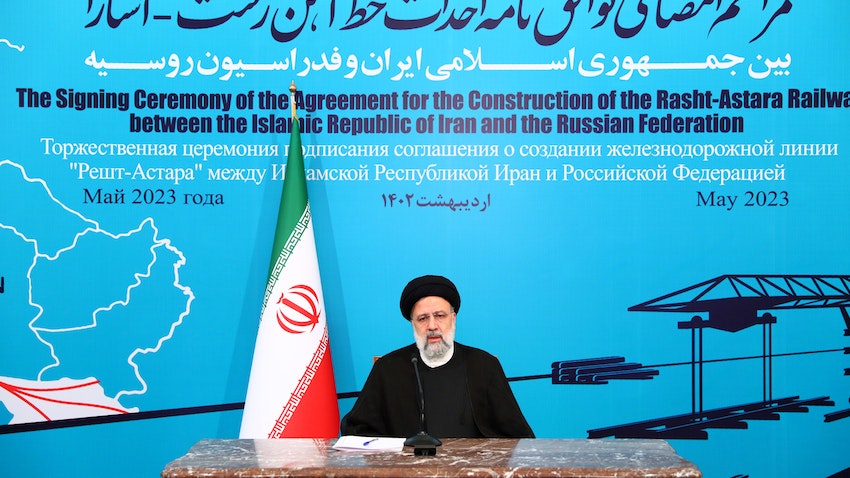 An Iran-Russia agreement has been signed for the construction of an Iranian railway that political leaders in the two countries say “will rival the Suez Canal”.
An Iran-Russia agreement has been signed for the construction of an Iranian railway that political leaders in the two countries say “will rival the Suez Canal”.
Russian President Vladimir Putin and his Iranian counterpart Ebrahim Raisi on Wednesday oversaw by video link the signing of an agreement to finance and build an Iranian railway line as part of an embryonic North-South Transport Corridor.
The Rasht-Astara rail line is seen as an important link in the corridor, which aims to connect India, Iran, Russia, Azerbaijan and other countries by rail and sea, a corridor Russia says can rival the Suez Canal as a major route for world trade. “The single North-South transport artery, of which the Rasht-Astara railway will be a part, will help significantly diversify global traffic flows,” Putin said on the occasion.
The 162 km railway along the Caspian Sea will help connect Russian ports on the Baltic Sea with Iranian ports on the Indian Ocean and the Persian Gulf, the Russian president added on the occasion of the signing of the Iran-Russia agreement. “Undoubtedly, this agreement is an important and strategic step towards cooperation between Tehran and Moscow,” said Iranian President Ebrahim Raisi.
Iran-Russia agreement for EUR 1.6 billion investment
Under the agreement, Russia will invest EUR 1.6 billion to build the railway, which is scheduled to be completed in four years. The Iranian section of the project will cost around EUR 4.6 billion and investors are being sought to make up the difference. There will be nine railway stations along the route.
Russia and Iran have been pushed to strengthen their political and economic relations by Western sanctions imposed on each other, but which both see as unjustified. Since the 1979 Islamic revolution that ousted the US-backed Shah Reza Pahlavi from power, Iran has been ostracised by the West and its economy has been hit by countless sanctions. Iran holds around a quarter of the Middle East’s oil reserves.
The West has imposed a new set of restrictions on Tehran’s nuclear programme, while Russia has been sanctioned for its war in Ukraine.
Share on:



